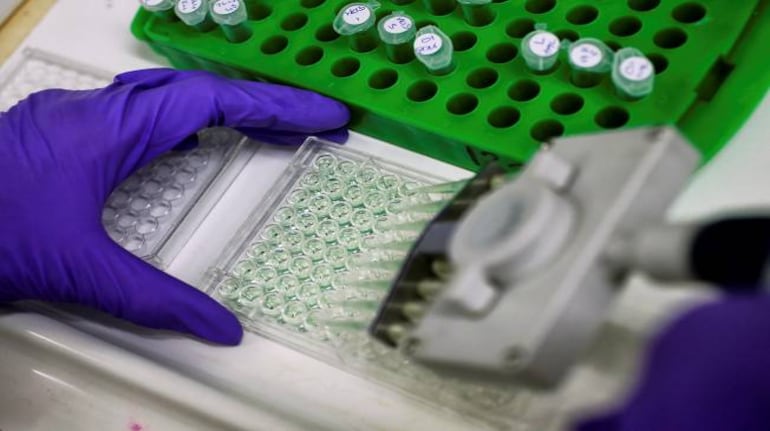



Scientists, including one of Indian-origin, have documented the persistence of antibodies that target the novel coronavirus in the blood and saliva of patients with COVID-19 at least three months after symptom onset, a finding that may lead to alternative methods of testing for the viral infection.
The study, published in the journal Science, points to the IgG class of antibodies as the longest-lasting antibodies detectable in the patients during this time frame, and may serve as promising targets to detect and evaluate immune responses against the SARS-CoV-2 virus.
According to the researchers, including those from the Harvard Medical School in the US, these antibodies could be detected at similar levels in both blood and saliva, suggesting that saliva could be used as an alternative biofluid for antibody testing.
Follow our LIVE blog for the latest updates of the novel coronavirus pandemic
In the research, Anita Iyer and her team measured antibody responses in the blood of 343 patients with COVID-19 for up to 122 days after symptom onset, and compared these responses to those of 1,548 control individuals sampled before the pandemic.
The scientists focused only on antibodies specific to the receptor binding domain of the SARS-CoV-2 spike protein which it uses to enter host cells.
They estimated sensitivities of the antibody types IgG, IgA, and IgM at 95 percent, 90 percent and 81 percent, respectively, for detecting infected individuals between 15 to 28 weeks after symptom onset.
Among these antibodies, the study noted that spike protein-specific IgM and IgA were short-lived, dropping beneath detection levels at around 49 and 71 days, respectively, after the appearance of symptoms.
However, it noted that the spike protein-targeted IgG responses decayed slowly over a period of 90 days, with only three individuals losing them within this timeframe.
According to the researchers, the levels of spike protein-specific IgG strongly correlated with levels of neutralising antibodies in the patients.
They also did not observe cross-reactivity of any SARS-CoV-2-targeting antibodies with other "common cold" coronaviruses.
Another study published in the journal Science also found that while IgA and IgM antibodies targeting the spike protein’s receptor binding domain rapidly decayed, the IgG type remained relatively stable for up to 105 days after symptom onset in 402 patients with COVID-19.
In this study, researchers including Baweleta Isho from the University of Toronto in Canada, detected spike protein-specific antibodies in the saliva, as well as the blood, of these patients.
They charted the patients’ antibody responses from three to 115 days after symptom onset, and compared their profiles with 339 pre-pandemic controls.
The scientists found that patients with COVID-19 showed peak IgG levels at 16 to 30 days after the appearance of symptoms.
According to the researchers, the levels of all spike protein-specific IgG, IgM, and IgA antibodies in the blood positively correlated with levels observed in matched saliva samples.
"Given that the virus can also be measured in saliva by PCR, using saliva as a biofluid for both virus and antibody measurements may have some diagnostic value,” they wrote in the study.
Follow our full coverage of the coronavirus pandemic here.
Discover the latest Business News, Sensex, and Nifty updates. Obtain Personal Finance insights, tax queries, and expert opinions on Moneycontrol or download the Moneycontrol App to stay updated!
Find the best of Al News in one place, specially curated for you every weekend.
Stay on top of the latest tech trends and biggest startup news.